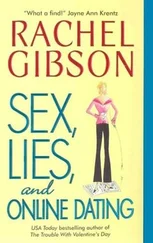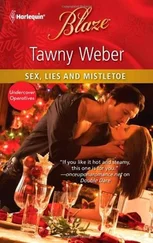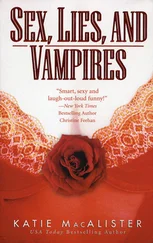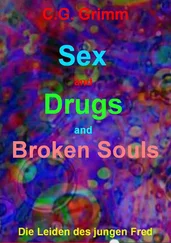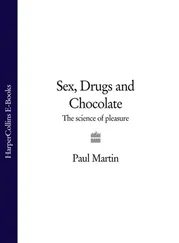Every time I watch a Spike Lee movie on HBO, I get nervous. That probably happens to a lot of white people, and I suppose that’s sort of the idea. But my reason for getting nervous has nothing to do with the sociocultural ideas that Spike expresses, nor does it have anything to do with fear that a race riot is going to break out in my living room, nor is it any kind of artistic apprehension. My fear is that I know there’s a 50 percent chance a particular situation is going to occur on screen, and the situation is this: A black guy and a white guy are going to get into an argument over basketball, and the debate will focus on the fact that the black guy loves the Lakers and the white guy loves the Celtics. And this argument is going to be a metaphor for all of America, and its fundamental point will be that we’re all unconsciously racist, because any white guy who thought Larry Bird was the messiah is latently denying that Jesus was black. The relative blackness and whiteness of the Los Angeles Lakers and the Boston Celtics (circa 1980–1989) is supposed to symbolize everything we ever needed to know about America’s racial cold war, and everyone who takes sports seriously seems to concede that fact.
But this metaphor is only half the equation.
To say the 1980s rivalry between the Celtics and the Lakers represents America’s racial anguish is actually a shortsighted understatement. As I have grown older, it’s become clear that the Lakers-Celtics rivalry represents absolutely everything : race, religion, politics, mathematics, the reason I’m still not married, the Challenger explosion, Man vs. Beast, and everything else. There is no relationship that isn’t a Celtics-Lakers relationship. It emerges from nothingness to design nature, just as Gerald Henderson emerged from nothingness to steal James Worthy’s errant inbound pass in game two of the 1983 finals. Do you realize that the distance between Henderson and Worthy at the start of that play—and the distance between them at the point of interception—works out to a ratio of 1.618, the same digits of Leonardo da Vinci’s so-called “golden ratio” that inexplicably explains the mathematical construction of the universe? [38] 1. This is probably not true.
Do not act surprised. It would be more surprising if the ratio did not.
Am I Serious?
Yes. How could I not be? For ten years—but for only ten years—you had two teams that were (a) clearly the class of their profession, and (b) completely and diametrically opposed in every possible respect. This is no accident. For at least one decade, God was obsessed with pro basketball. And as I stated earlier, everyone always wants to dwell on the fact that (a) the Celtics started three Caucasians in a league that was 80 percent black and (b) the Lakers never had a white player who mattered (the only exception being Kurt Rambis, a role player who seemed artless on purpose, going so far as refusing to purchase contact lenses). But what made this rivalry so universal was that it wasn’t about black and white people; it was about black and white philosophies. Americans have become conditioned to believe the world is a gray place without absolutes; this is because we’re simultaneously cowardly and arrogant. We don’t know the answers, so we assume they must not exist. But they do exist. They are unclear and/or unfathomable, but they’re out there. And—perhaps surprisingly—the only way to find those answers is to study NBA playoff games that happened twenty years ago. For all practical purposes, the voice of Brent Musburger was the pen of Ayn Rand.
Perhaps you’re curious as to why we must go back two decadesto do this; obviously, pro basketball still exists. The answer is simple: necessity. I mean, you certainly can’t understand the world from the way the NBA is now. Two years ago, I watched an overtime game between the Philadelphia 76ers and the Toronto Raptors: Allen Iverson scored 51 points and Vince Carter scored 39. As I type those numbers into my keyboard, it looks like I’m painting the portrait of an amazing contest (and exactly the kind of mano-a-mano war NBC wanted to show me on a Sunday afternoon). But it was an abortion. It was like watching somebody commit suicide with a belt and a folding chair. Iverson took 40 shots; Carter was 15 for 36 from the field. It was like those excruciating NBA games from the late 1970s, where collapsing super-novas such as World B. Free and John Williamson would shoot the ball on every possession and David Thompson would try to score 70 points against the New Orleans Jazz before blowing two weeks’ pay on Colombian nose candy. Guys like Iverson and Carter are mechanically awesome, but they don’t represent anything beyond themselves. They’re nothing more than good basketball players, and that’s depressing. Watching modern pro basketball reminds me of watching my roommate play Nintendo in college. In order to remedy this aesthetic decline, the league decided to let teams play zone defense, which has got to be the least logical step ever taken to increase excitement. This is like trying to combat teen pregnancy by lowering the drinking age.
The NBA doesn’t need to sanction zone defense; the smart guys were playing zone when it was still illegal. Larry Bird played zone defense every night of his career. What the NBA needs to do is provide a product that will help us better understand ourselves and foster self-actualization. Granted, this is not an easy goal to legislate. But that’s the only solution that can save this dying brachiosaurus. I didn’t need Michael Jordan to come back; I need to watch a game that tells me who to vote for.
Here’s what I mean: I never understood partisan politics until I watched the last epic Lakers-Celtics war, which happened in the summer of 1987. The contest everyone remembers is game four, which I watched as a high school sophomore at a summer basketball camp on the campus of North Dakota State University. You probably remember this game, too: It’s June 9 at the Boston Garden, and the Lakers lead the series 2–1. Boston has the ball with under thirty seconds left, down one; they dump it to McHale on the right block, who kicks it out to Ainge, who reverses to Bird in the far corner for a three. Twine. Celtics by two. The Lakers come down on offense and Kareem gets hacked; he makes one and misses the second, but it bounces off Parish and goes out of bounds under the rack. Magic takes the in bounds pass, blows by McHale and hits that repulsive running hook across the lane. Lakers lead by one. After the obligatory timeout moves the rock to halfcourt, the Celtics have two seconds to get a shot. Bird’s forty-footer is dead-on, but two inches deep. L.A. wins 107–106; they go up three games to one and win the rings five days later.
This, of course, was like a ten-inch stiletto jammed into my aorta. Magic Johnson is one of my favorite players of all time, but I hate him. I once interviewed Johnson about all those stupid, civic-minded, state-of-the-art movie theaters he’s putting into depressed urban areas, and I was caught between feeling impressed by his suit, nervous about his stature, and overcome by the desire to punch him in the face. However, my personal feeling toward Earvin can’t negate the larger meaning of his heroics, and that meaning is political. Because what I really remember most about that game was that I was just about the only kid at this camp who wanted Boston to win. The only other people who liked the Celtics were the camp’s coaches; I was the only Bird apostle under the age of thirty-five. If you liked the Celtics, it meant you liked your dad’s team. And this is when I came to understand that I was actually rooting for the Republican party.
Читать дальше



